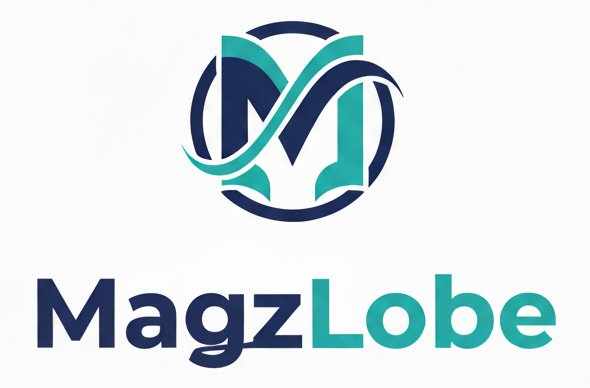ombudsmänner — The Role, Power, and Practical Impact of Citizen Advocates
Introduction
The concept of ombudsmänner has become a cornerstone of modern democratic and corporate accountability. These independent officers act as trusted mediators between citizens and institutions, ensuring fairness, transparency, and the right to be heard. Whether you’re challenging a public service, workplace policy, or consumer issue, ombudsmänner can help you navigate bureaucracy and find justice without going to court.
Who Are ombudsmänner and What Do They Do?
At its core, an ombudsmänner office represents the public’s voice in disputes against organizations, governments, or corporations. Their primary mission is to handle complaints objectively, investigate impartially, and recommend fair outcomes.
Core responsibilities include:
-
Receiving and analyzing public complaints.
-
Conducting independent investigations.
-
Mediating disputes between citizens and authorities.
-
Recommending reforms to prevent future issues.
-
Ensuring human rights and ethical standards are upheld.
Unlike a court, ombudsmänner don’t issue binding judgments, but their reports carry significant moral and institutional weight.
A Brief History of ombudsmänner
The first ombudsmann office originated in Sweden in 1809. It was created to ensure government accountability and citizen rights. Over time, the model expanded globally, influencing similar institutions in countries like Denmark, the UK, Canada, and New Zealand.
Today, organizations like the European Ombudsman and the International Ombudsman Institute (IOI) set international standards for fairness, transparency, and procedural independence.
Types of ombudsmänner
The functions of ombudsmänner vary depending on their area of responsibility. Below are the main types:
Public ombudsmänner
Focus on government or public sector complaints, such as delays in benefits or misuse of authority.
Corporate ombudsmänner
Operate inside private companies to handle employee grievances, ethical breaches, and compliance issues.
Consumer ombudsmänner
Help customers resolve issues with businesses—covering disputes about billing, contracts, or product quality.
Human rights ombudsmänner
Protect civil liberties, promote equality, and investigate human rights violations.
Specialized ombudsmänner
Target sectors like education, finance, healthcare, or environment, offering expertise for sector-specific problems.
Why ombudsmänner Matter in Modern Society
Ombudsmänner provide three key benefits: accessibility, impartiality, and transparency.
In societies where citizens often feel powerless against large bureaucracies, ombudsmänner give them a voice.
They also help institutions identify systemic weaknesses. For instance:
-
A consumer ombudsmann might notice repeated complaints about hidden fees and recommend clearer pricing policies.
-
A corporate ombudsmann might reveal patterns of workplace harassment, leading to stronger HR frameworks.
Ultimately, ombudsmänner act as a mirror reflecting institutional accountability.
The Day-to-Day Work of ombudsmänner
A standard ombudsmann investigation usually follows five main stages:
-
Complaint submission: Citizens submit a formal complaint through an online or written form.
-
Eligibility screening: The office ensures the issue falls within its mandate.
-
Investigation: Interviews, document reviews, and data analysis take place.
-
Recommendations: The ombudsmann issues a report with proposed solutions.
-
Follow-up: Ensures the entity implements the recommendations effectively.
This structured approach blends individual fairness with broader system reform.
Challenges Faced by ombudsmänner
Despite their importance, ombudsmänner encounter several challenges:
-
Limited authority: Many offices cannot enforce their decisions.
-
Funding constraints: Small budgets can reduce investigative capacity.
-
Political pressure: Independence must be fiercely protected.
-
Awareness gaps: Many citizens simply don’t know such services exist.
These challenges underline the need for public education and government commitment to strengthening ombudsmann institutions.
How Citizens Can Benefit from ombudsmänner
Filing a complaint with an ombudsmann can lead to fast, free, and fair outcomes.
Best practices when submitting a complaint:
-
Gather all documentation and evidence.
-
Be clear and concise about the issue.
-
Identify what resolution you’re seeking.
-
Follow up politely if you don’t receive an initial reply.
When used properly, ombudsmänner can save months of frustration and promote fair treatment for all parties involved.
The Role of ombudsmänner in Corporate Governance
Large organizations increasingly employ ombudsmänner to maintain ethical integrity.
They serve as a confidential listening post, allowing employees to discuss issues safely.
For example, multinational corporations like Siemens, Volkswagen, and Deutsche Bank have ombuds programs that handle compliance and internal disputes discreetly.
This helps foster trust, reduce retaliation risks, and encourage employees to raise concerns early—before they escalate into public scandals.
ombudsmänner in the Digital Era
As services move online, digital ombudsmänner are emerging to address data privacy, AI ethics, and online consumer protection.
Organizations like the European Data Protection Supervisor (EDPS) now function similarly to ombudsmänner in regulating privacy practices.
Artificial Intelligence ombuds offices are also being discussed globally to oversee algorithmic fairness and transparency.
International Cooperation Between ombudsmänner
Cross-border issues, such as migration or digital trade, require cooperation among ombudsmänner from different nations.
Institutions like the International Ombudsman Institute (IOI) and the Council of Europe facilitate training, knowledge sharing, and best practice frameworks.
These networks help ensure that citizens’ rights are protected even in an increasingly interconnected world.
How ombudsmänner Promote Democracy and Human Rights
Beyond resolving disputes, ombudsmänner defend democracy by:
-
Protecting freedom of information.
-
Ensuring fair treatment by public authorities.
-
Investigating discrimination and abuse.
-
Promoting transparency through annual reports.
By giving citizens a voice and holding power accountable, ombudsmänner strengthen the rule of law and democratic integrity.
Conclusion
In a world where bureaucratic red tape often silences individual voices, ombudsmänner serve as champions of fairness and transparency. They investigate, mediate, and advise—turning frustration into resolution. Whether you’re facing a business dispute, a public grievance, or a human rights concern, turning to an ombudsmann might be your first step toward real change.
Also Read: Pertadad: Focused Performance Data for Better Decisions
People Also Ask (FAQ)
What is the main role of ombudsmänner?
Ombudsmänner investigate complaints against organizations, public agencies, or corporations to ensure fair treatment and accountability.
Are ombudsmänner government officials or independent bodies?
They are independent offices, often appointed by parliament or boards, and operate free from government interference to maintain neutrality.
How can I contact an ombudsmann?
Most ombudsmann offices accept complaints via websites, email, or post. Some offer phone hotlines for urgent or accessibility-related cases.
Can ombudsmänner enforce their decisions?
In most cases, their decisions are recommendations, not legally binding orders. However, public exposure and moral authority usually encourage compliance.
What types of issues can ombudsmänner handle?
They can address administrative delays, workplace disputes, unethical practices, billing problems, or human rights violations—depending on their mandate.













